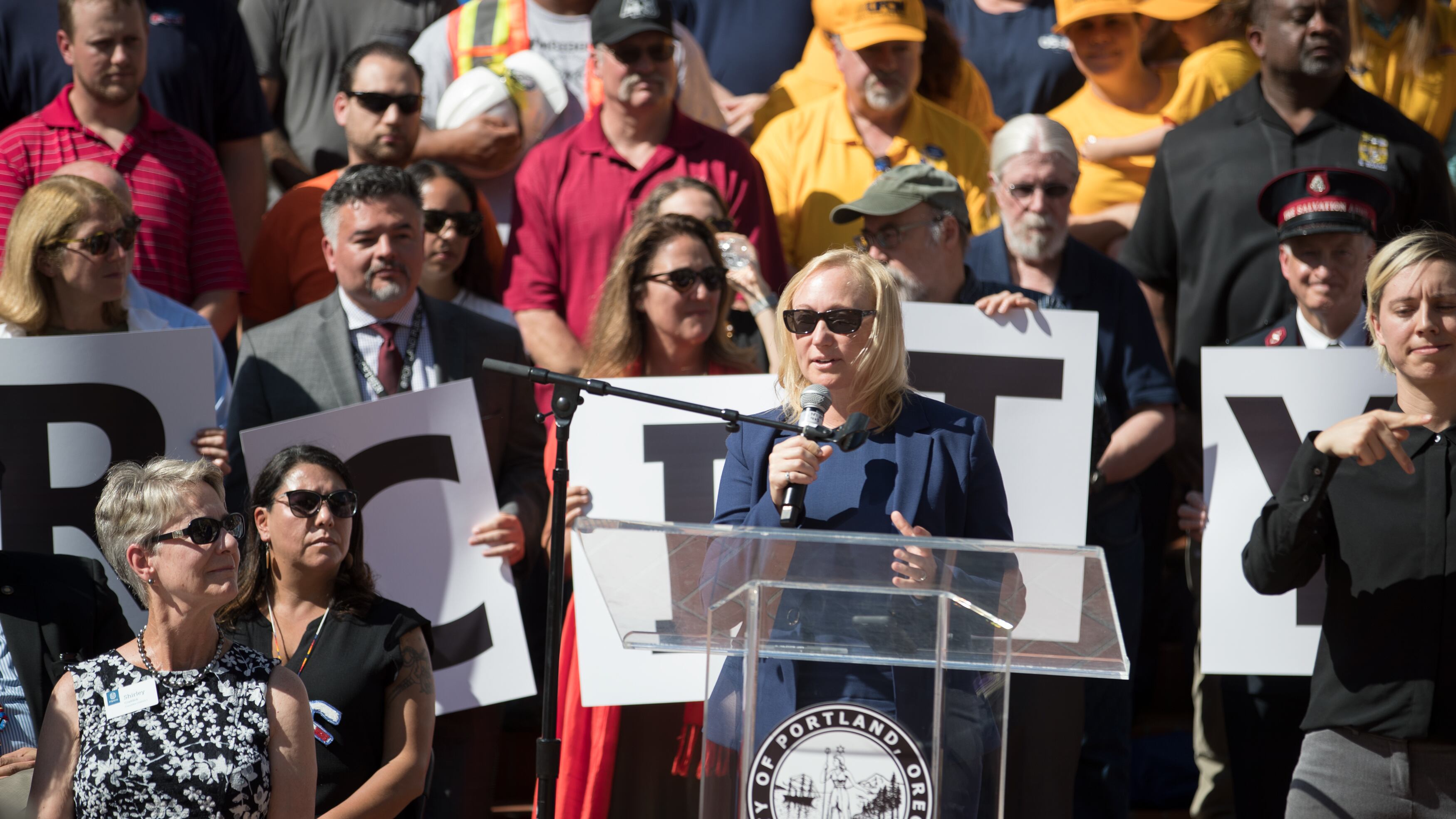Lynn Peterson has been in politics for a long time. She served on the Lake Oswego City Council for three years. She served four years on the Clackamas County Board of Commissioners. She was a transportation adviser in the administration of Oregon Gov. John Kitzhaber. And she has served for the past 10 months as chief of Metro, the Portland-area regional government responsible for planning, garbage, the zoo, regional parks and the Convention Center.
That's plenty of time to learn Oregon's public records law.
And yet for the first nine months of her tenure at Metro, Peterson used her personal phone to conduct public business while failing to retain records of her texts.
That appears to be a violation of Oregon's public records law. And it means citizens cannot learn how many policy conversations have been held in secret, during a period when Metro has asked voters to pass more than a billion dollars in property tax bonds.
"She should know better," says Eric Fruits, vice president of research at the conservative public policy group Cascade Policy Institute, which opposes Metro's $475 million parks bond on the Nov. 5 ballot. "Although she was new in the job of the Metro councilor, she was not new to public service."
WW learned of Peterson's text-deleting habit when it filed a records request for the Metro Council president's electronic correspondence with a housing activist. The records of those communications WW has obtained appear innocuous, but Peterson's failure to maintain all of them raises troubling questions.
Metro could not provide some of those records because, Peterson said, she had her phone set to delete messages after 30 days. Oregon Revised Statute 192, which lays out the public records law, states that a "'public record' includes any writing that contains information relating to the conduct of the public's business."
That includes text messages.
When asked about her failure to retain the records, Peterson first told WW in a phone call Oct. 24 that she has a separate phone for Metro business that does keep text messages. But Peterson said she occasionally uses her personal cellphone and that this phone auto-deleted texts after 30 days and had probably been set that way for some time.
"I had not turned off the 30-day delete when I was elected," Peterson told WW. In that call, she could recall only two Metro-related texting exchanges that had been on her personal cell: contacts with her scheduler and the one with the housing activist that WW requested.
Less than an hour after the call with Peterson, her spokesman, Nick Christensen, who had also been on the call to WW, asked to "clarify some of Lynn's comments," and point out there were other Metro business texts sent and received on that phone that also were not saved.
"She didn't get her work cellphone right away when she was sworn in," Christensen tells WW. "People did text her on her personal phone because that's the contact they've had. We don't have records of those texts before 30 days."
He also said Peterson's pattern of using her personal cellphone had not completely changed until WW made its records request. Moving forward, he said, she will use her government-issued phone for public business—and retain records on her private cellphone.
Public records advocates say texting from a personal cellphone and not retaining the records is a problem.
Conducting public business via text without preserving the record "intentionally or unintentionally" means the public's business "is being conducted in secret against the will of the people," says Shasta Kearns Moore, vice president of Open Oregon, which advocates for transparency in public records.
"I should think every public official in the United States would have learned this from Hillary Clinton's use of a private server: That did not shield her records from the public's right to know," adds Portland lawyer Jeff Merrick, who specializes in public records.
While Peterson appears to have violated ORS 192, Oregon public records law only provides a penalty for officials if there's evidence they violated the law intentionally.
Peterson's disregard for public records law raise questions about her leadership of a government agency that is taking on an increasingly prominent role in the Portland region's politics.
Last year, Metro passed a $653 million affordable housing bond. Next week, voters will decide whether to replace a previously approved bond to buy and improve open spaces. And Metro plans to go to the ballot next year with a transportation measure that would fund $3 billion worth of projects.
Just days into her tenure, Oregon Public Broadcasting reported Peterson had been "mentioned as a possible Democratic candidate for Oregon governor in a few years."
On Monday, Peterson said WW's public records request uncovered her error in having her phone set to delete texts automatically. She would not answer WW's question of how many public records she believes were deleted or how often she texted with constituents before Oct. 15.
"The important point is that you, with your records request, helped me figure out I had the 30-day delete thing on," she says. "And that's been taken care of."

